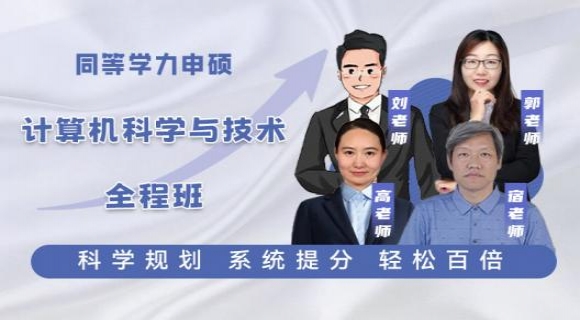
For years, studies have found that first-generation college students- those who do not have a parent with a college degree- lag other students on a range of education achievement factors. Their grades are lower and their dropout rates are higher. But since such students are most likely to advance economically if they succeed in higher education, colleges and universities have pushed for decades to recruit more of them. This has created “a paradox” in that recruiting first- generation students, but then watching many of them fail, means that higher education has “continued to reproduce and widen, rather than close” ab achievement gap based on social class, according to the depressing beginning of a paper forthcoming in the journal Psychological Science.
But the article is actually quite optimistic, as it outlines a potential solution to this problem, suggesting that an approach (which involves a one-hour, next-to-no-cost program) can close 63 percent of the achievement gap (measured by such factors as grades) between first-generation and other students.
The authors of the paper are from different universities, and their findings are based on a study involving 147 students ( who completed the project) at an unnamed private university. First generation was defined as not having a parent with a four-year college degree. Most of the first-generation students(59.1 percent) were recipients of Pell Grants, a federal grant for undergraduates with financial need, while this was true only for 8.6 percent of the students wit at least one parent with a four-year degree.
Their thesis- that a relatively modest intervention could have a big impact- was based on the view that first-generation students may be most lacking not in potential but in practical knowledge about how to deal with the issues that face most college students. They cite past research by several authors to show that this is the gap that must be narrowed to close the achievement gap.
Many first- generation students “struggle to navigate the middle-class culture of higher education, learn the ‘rules of the game,’ and take advantage of college resources,” they write. And this becomes more of a problem when collages don’t talk about the class advantage and disadvantages of different groups of students. Because US colleges and universities seldom acknowledge how social class can affect students ’educational experience, many first-generation students lack sight about why they are struggling and do not understand how students’ like them can improve.
1. Recruiting more first- generation students has_______
[A] reduced their dropout rates
[B] narrowed the achievement gapf
[C] missed its original purpose
[D] depressed college students
2. The author of the research article are optimistic because_______
[A] the problem is solvable
[B] their approach is costless
[C] the recruiting rate has increased
[D] their finding appeal to students
3. The study suggests that most first- generation students______
[A] study at private universities
[B] are from single-parent families
[C] are in need of financial support
[D] have failed their collage
4. The author of the paper believe that first-generation students_______
[A] are actually indifferent to the achievement gap
[B] can have a potential influence on other students
[C] may lack opportunities to apply for research projects
[D] are inexperienced in handling their issues at college
5. We may infer from the last paragraph that_______
[A] universities often reject the culture of the middle-class
[B] students are usually to blame for their lack of resources
[C] social class greatly helps enrich educational experiences
[D]colleges are partly responsible for the problem in question

文章分析
本文主要探讨了“初代”大学生在教育成就方面落后于其他学生的问题。首段开门见山提出多年研究结论,并指出了高校面临的困境:扩招“初代”大学生,却忽略了基于社会基层的成就差距的不断扩大。第二段指明《心理学》杂志上的一篇文章对此现象总体基调很乐观,并指出了解决方案。第三段详细介绍了实验过程,并指出大多数“初代”学生接受了经济资助。第四段明确指出“初代”大学生欠缺处理问题的实际技能。文章尾段指出成就差距不断扩大的原因在于学校没有意识到社会阶层带来的影响。
1.【答案】C
【考点】细节题
【命题思路】这是一道细节题。主要考查考生准确理解题干,精准定位,并能正确划分和掌握定位信息的能力。
【直击答案】根据题干关键词“recruiting more first¬generation students”定位到第一段的第四句。But后内容为解题关键。本句指出在招录“初代”大学生时出现的困境及产生的不良结果,即“不断产生和扩大成就差距,而不是缩小差距”。由此证明背离了初衷。比对四个选项,确定最佳选项为C项。
【干扰排除】A项与原文的“their dropout rates are higher”矛盾,属于反向干扰,故排除。B项也是反向干扰,与原文的“rather than close”矛盾。C项属于张冠李戴,原文中的depressing是用来修饰the paper,而非大学生,故排除。
2.【答案】A
【考点】细节题
【命题思路】这是一道原因细节题。主要考查考生准确理解题干,精准定位,并能正确划分和掌握定位信息的能力。
【直击答案】根据题干关键信息“research article are optimistic because……”定位到第二段第一句“But the article is actually quite optimistic, as it outlines a potential solution to this problem”。as引导的句子即为正确答案所在。A项中的“this problem”是原文原词的复现,“solvable”和“solution”属于同根替换。A项从形式、语义上都与原文符合,确定为最佳答案。
【干扰排除】C项和D项都是无中生有,故排除;B项属于反向干扰,原文指出这个解决措施是“next¬to¬no¬cost”,并非选项的“costless”。
3.【答案】C
【考点】推理题
【命题思路】这是一道推理题。主要考查考生精准理解原文定位信息,查找相互关联,并进行适度推理和概括的能力。
【直击答案】根据题干关键信息“most first¬generation students”定位到第三段末句 “Most of first¬generation students were recipients of Pell Grants(佩尔奖学金),a federal grant for undergraduates with financial need”。此句重在说明“初代”大学生大都接受了经济资助。比对四个选项,确定此题最佳答案为C项,其中“in need of”对应原文的“with…need”,“financial support”对应“financial”相对应。
【干扰排除】A项是无中生有,原文仅提及此研究是在一个“unnamed private university”进行,并不是指“初代”大学生;B项和D项也属无中生有,原文未提及,故排除。
4.【答案】D
【考点】细节题
【命题思路】这是一细节题。主要考查考生准确借助题干关键信息定位,并准确划分和把握定位信息的能力。
【直击答案】根据题干关键词“the authors of the paper”定位到第四段第一句“Their thesis …that face most college students”处。这句话中明确说到“初代”学生缺乏的不是潜能,而是处理学校问题的实际经验。D项与此信息属于同义替换,其中“are inexperienced”与原文的“lacking in practical knowledge”对应,“handling their issues”对应“how to deal with the issues”,“at college”与“that face most college students”对应。
【干扰排除】A项、B项、C项都属于无中生有,故排除。
5.【答案】D
【考点】推理题
【命题思路】这是一道封闭推理题。本题主要考查考生有效辨别段落核心信息,进行适度推理的能力。
【直击答案】根据题干关键词“infer from the last paragraph”定位到最后一段。本题是段落推理题,可以通过寻找段落中心句的方式来解。本段共三句:第一句和第二句是并列关系,均提出“初代”学生中存在的与社会阶层有关的问题。第三句以一个“because”所引导的原因状语从句点明中心,明确该问题的来源是美国高校未承认社会阶层对学生教育经历的影响,说明高校应该为出现的问题担负部分责任。因此D项正确。
【干扰排除】A项、B项、C项在此段并未提及,属于无中生有,故排除。











